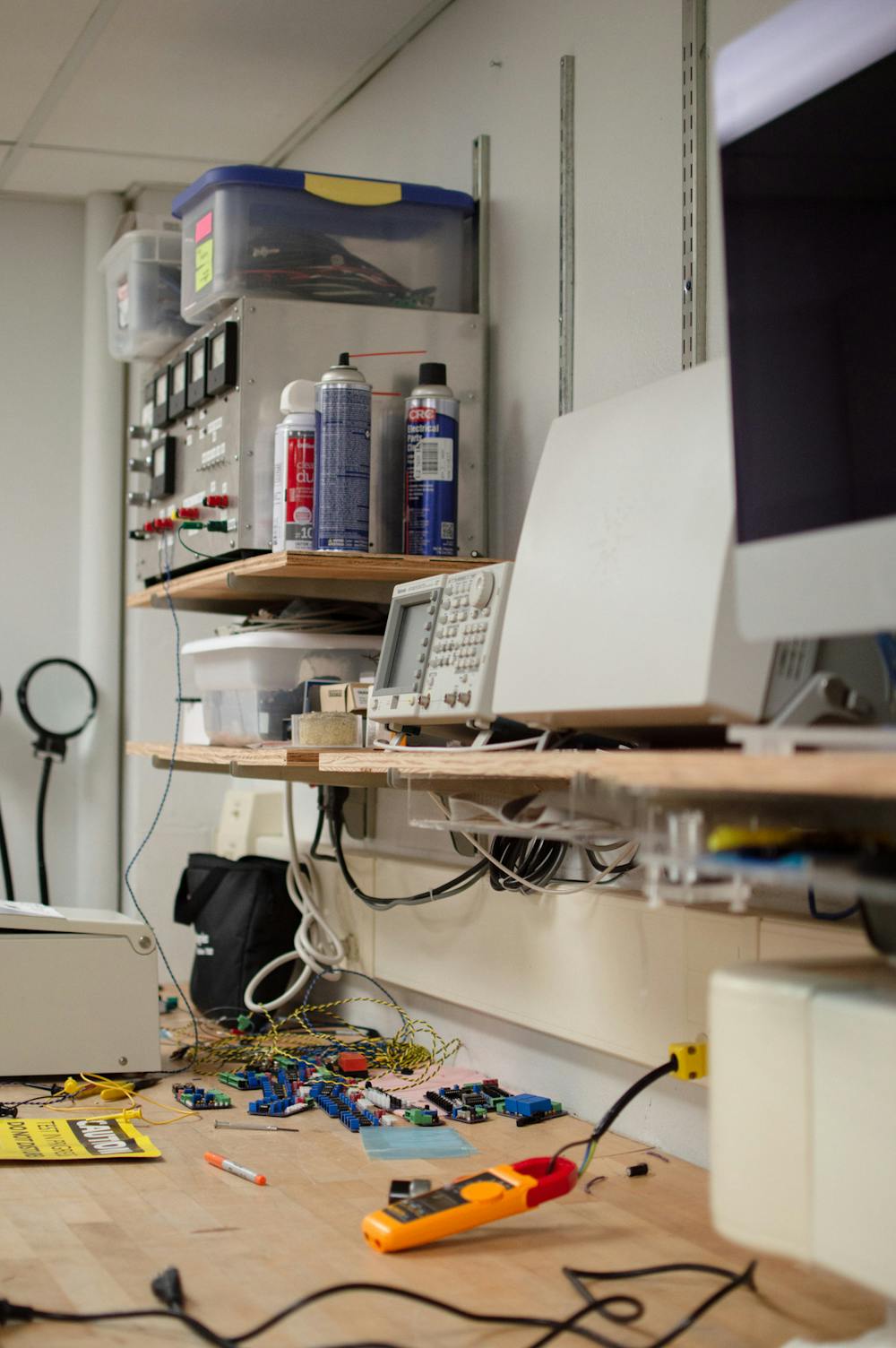In the basement of Miami University’s Hughes Hall, below the classrooms and past the various whirring machines, is a small laboratory where Michael Weeks works. Here, machinery for all different departments is created, made and repaired.
The machines they fix range from centrifuges and PCR machines to custom electronics that the lab has previously built. The lab also has a technological component, working on physical technology as well as creating code to operate certain machines.
Weeks serves as the director of the instrumentation laboratory. He works alongside Jayson Alexander, a machinist, and Kyle Turner, a junior instrumentation engineer. These three make up the staff of the lab, which serves the entire Oxford campus and regional branches.
The lab is part of the College of Arts and Science; however, this doesn’t limit who they can work with.
“Being a centralized facility like this, we're accessible and inclusive to everybody,” Weeks said. “We're not working for one department like everybody else. Everyone has access to the services and the expertise here.”
The facility uses a Google form where customers fill out the details of their requests. This form is then placed in a queue to ensure the lab does not prioritize anybody's research.
“We're not in the business of that, to say that somebody's research is more important than somebody else's,” Weeks said.
Once the request is received, the lab connects with the customer to understand the details of the request, which range from simply fixing a part of a machine to creating code to building custom electronics for a lab like Edward Carlo Samson’s, an assistant professor in the physics department.
Samson serves on the advisory committee for the facility along with several other professors from various departments. He also has worked closely with the instrumentation lab for his work in ultracold atom physics.
“This was custom made for my lab because, at least for physics research, especially for experimental research in my field, there's no established equipment that you can buy off-shelf,” Samson said.
Not only did the instrumentation lab build the physical parts for Samson’s lab, they also helped create the code that operates the machinery that they built.
“I got lucky that there's an instrumentation department in Miami,” Samson said. “I was actually surprised that there's an instrumentation lab for a liberal arts college.”
Enjoy what you're reading?
Signup for our newsletter
The instrumentation lab uses machines and electronics to create models for classes across campus.
Jazzminn Hembree, the director of lab animal resources, shared a similar experience when it comes to her research at Miami.
“We couldn't do what we do and be as productive as we are if we didn't have such a great collaboration with them,” Hembree said. “I honestly don't think Miami would be able to do a lot of the research and be as productive and cost cutting as we have been.”
Another strength of the instrumentation lab is how much it saves the researcher’s money. Samson said the lab doesn’t charge people for any expenses other than materials, not even the staff’s hours. Weeks said the labor costs are covered by Miami, which helps out the researchers working on grants because they can stretch their money.
The instrumentation laboratory also helps to maintain the preexisting machinery here at Miami.
“[The instrumentation lab members] come over really frequently because our equipment has outlasted their normal lifespan,” Hembree said. “We wouldn't be able to keep them in such good shape if it wasn't for instrumentation helping us to manage them.”
Without the lab, researchers would have to outsource this type of maintenance.
“The primary goal of the instrumentation lab is that we support instrumentation that the researchers use,” Weeks said.
This goal is evident not only in the physical work that the laboratory does, but also in the impact it’s had on the Miami research community. Hembree said she can’t talk highly enough about the entire team.
With such a small laboratory, few students on campus are even aware that such a space exists at Miami, let alone the impact it has on the research community here.
“We're open to everybody on campus,” Weeks said. “So if they have an instrumentation request, please feel free to reach out to us. We're here to support.”




